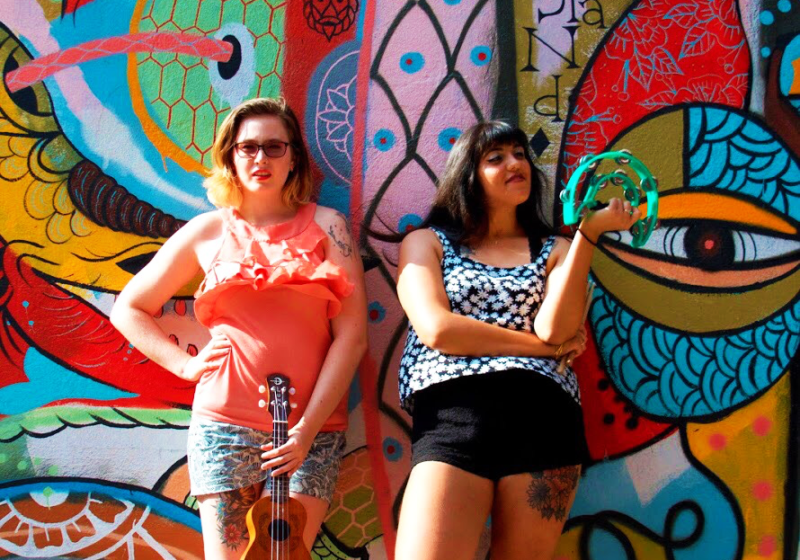If you were searching for a female acoustic indie-folk-pop duo based right here at UR, you’d be happy to find Candy Isle, comprised of seniors Kat Bakrania and Lydia Dake.
Bakrania and Dake started working together for the first time with Off Broadway On Campus, UR’s musical revue group.
“I did a lot of choir [before college],” Bakrania said. “I was heavily involved in musical theater.”
Added Dake: “I started doing musical theater in third grade. I just, like, have not not sang, ever. We kept going with it before this beautiful thing happened.”
Candy Isle’s formation was serendipitous, and its music is at once recognizable within the indie-pop/folk spheres but decidedly its own thing, too. Its recent EP, “Channel Surfing,” which can be found on Spotify and Bandcamp, uses folksy melodies in an homage to the world of television.
Just as significant and unique as Candy Isle’s music is its identity. Dake doesn’t beat around the bush: “The mainstream scene is super white dude–dominated.”
Though she and Bakrania feel that it’s clear that they have been welcomed into the campus music community with open arms, “it can be kind of weird to be the only woman of color on the set list,” Bakrania said. “Sometimes the only women on the set list.”
In a genre almost exclusively represented by white, predominantly male bands, Candy Isle is iconoclastic.
“You just want to see yourself represented,” Bakrania said.
Though there isn’t too much of a scene for bands like Candy Isle yet, Bakrania and Dake hope that by providing something for women like them to look up to, they can help create one.
Does the birth of such a scene hinge on the musicians or the fans?
“[The musicians] have to seek it out,” said Dake, “but the fans have to be there. People aren’t explicitly trying not to support it. If musicians aren’t collaborating and setting things up and making those spaces […] things aren’t going to happen unless the fans are there to support.”
Bakrania backed her up.
“A lot of bands that are in Rochester share musicians. Usually if people are playing across groups they’re playing the same sound. There doesn’t seem to be a lot of cross-genre collaboration. The more willing musicians are to break out of what they know well, the more it’ll happen. It’s a mixture of both [artists and fans].”
When asked if carving out a space for representation is a responsibility or a blessing, Dake laughed.
“I’m just doing this for fun,” she said, adding, “It’s still going because we want to.”
Bakrania sees it as both an obligation and a boon.
“There’s not a lot of brown women in the indie music scene specifically. I do do it because I love it. But I am always proud to be a brown person, and I’m especially proud to be a brown person playing on a stage where there’s not a lot of people like me, in a genre where there’s not a lot of people like me.”
Dake nodded.
“I’ve learned a lot about how I react in these spaces.”
Bakrania added: “I feel like there’s a lot of room for self-reflection. Feels like we’ve grown so much […] since June 16, our first show. The date’s burned into my brain forever.”
“I’m happy you remember, so I can remember,” Dake replied.



